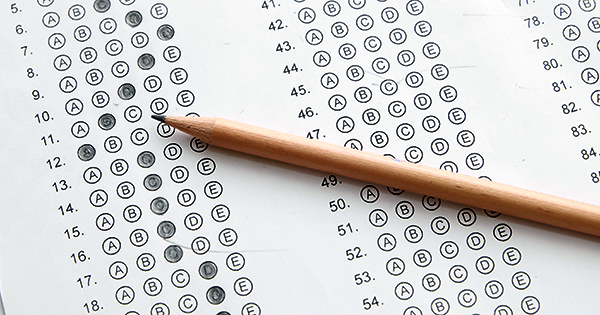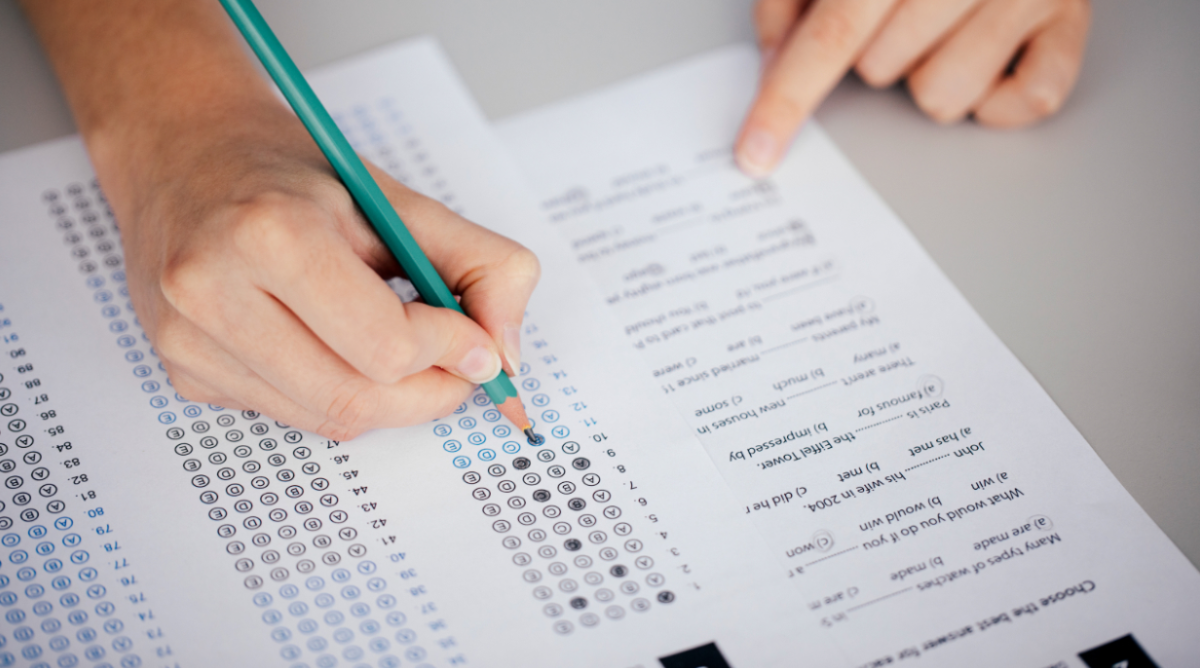A Guide to AP Classes

November 20, 2022
History was always my favorite subject, so when I had the chance to take AP US History (APUSH), I knew that path was for me. Was I scared? Oh absolutely. Did I consider dropping out?… Maybe. But I stuck with it, working my way through the different class pace and the impending doom of the exam in May. Soon enough July rolled around, and I woke up to an email from Mr. Piccini about our scores. I was, quite literally, frozen. Even though I thought it was one of the hardest, most frustrating things I’ve ever done, there it was: a 5. Ever since I’ve honed my skills by taking APs, and by the end of this year, I will graduate with 7 under my belt. How did I do it? Well, aren’t you lucky; you’re in the perfect place to find out. In this article, I’ll explain AP classes, their format, how to study, and how to decide if it’s right for you.
What is an AP class? Simple (-ish). AP stands for Advanced Placement and is a program run by College Board to let high school students take college-level courses. To test your proficiency, you must take an exam in May showing off all your hard work. Every course has a certain set of units that compile it, and your class will take each unit one at a time. The numbers vary from 4 units to 16. These classes are different from honors classes in the amount of material and the speed. The way AP classes are designed means that you will never truly understand and comprehend most of the material that you learn (bummer, I know). Teachers aren’t teaching that, mostly because they don’t have the time. The amount of material also requires a certain amount of speed, which for many is daunting. AP classes never give you time to rest or do an artistic project; the whole year is “go-go-go” until May.
Now let’s be honest: this sounds awful (and in ways it is). AP courses may be college level but they are not college accurate. A college professor would faint at an AP course syllabus. For example, the topic of World Exploration would take 1-2 classes in an AP class, but a few weeks for a college course, as their goals are different. AP needs you to have a general understanding, college needs you to truly understand. And when looking at pass rates (a score over a 3), it can be jarring looking at some courses. For example, Physics 1 has a 42.1% pass rate, meaning that over half of the people who took the exam failed.
Now, what is failing? AP exams are scored from 1 to 5. One is the lowest. For perspective, you could write your name on the exam and that’s it, you’ve got yourself a one. Very tragic when you’ve actually filled out the exam. A two is better; you did your best and got stuff right here and there, but it wasn’t enough to pass. A three is a sigh of relief; now this course has a chance to get you college credits, and a pretty good understanding of the subject. A four is pretty much golden; give yourself a pat on the back. Most colleges will accept these scores, and you pretty much know what you’re doing. A five is like God’s gift to man. Less than 10% of test takers usually get it, and some hypothesize it’s all luck. But the most important thing to remember is that the score truly doesn’t matter (I know what you’re thinking. She’s just saying that to make me feel better. Just wait, I’ll get there). Scores do not impact your average for the class, and if you choose not to send them to college, it never impacts your life. People take APs for the experience and for the challenge, and if you end up failing the exam, who cares? You did your best, you challenged yourself to something many students don’t even attempt, and you’ve come out on the other side. A number doesn’t and never will, define you. Before you decide to take an AP, or are considering dropping the class out for fear of the exam, I urge you to remember that it isn’t about the percentages, the scores of your classmates, or what Trevor Packer says on Twitter; it’s about growing as a person and a student, no matter how you choose to do it.
With all the general and emotional things out of the way, let’s talk about how to pass the class (and maybe the exam). First: learn the class expectations. Is it very note-based? If so, dedicate part of your day to do a few notes at a time. Make sure to also summarize, not every single word matters, only the broad picture. Is it super test focused? Really hone in on your study habits. Test out new ones on the quizzes and find out what works for you. APs are mostly working on your own, find the best way to teach yourself the material. Be prepared to bring questions into class. Questions will always help you, and everyone else in the class, understand the material better.
However, if the class is too much, it’s okay to ask for extensions and spend some time on yourself. Meditate, take a bath, get a good night’s sleep, or binge an entire season of Criminal Minds. Whatever helps you relax, do it! While school is important, your mental, physical, and emotional health are all even more so. Never feel bad about having to drop a class that really wears on you; you are the most important thing, and doing something far too over your head is not beneficial to anyone. I’m not saying to not challenge yourself, I’m saying to go one step at a time and not a flight of stairs.
So, what’s the whole point of this article? Are APs hard and will they ruin your life? No, not really. The purpose of this article is to set your expectations for the class you are about to take. It’s to give you a heads up, to make sure you know what’s going on before you get thrown into it. Feel free to check in with your teachers to see if the class is right for you, and other AP students and I are always willing to help. My email is always open to anyone who wants any help or advice, and everyone here wants you to succeed. Take a deep breath, prepare yourself to open Veracross, and let’s ace this exam.

























